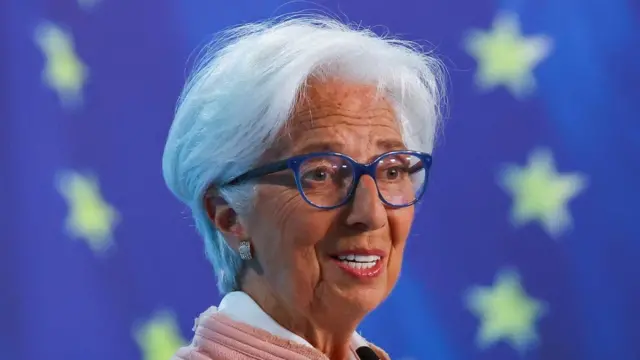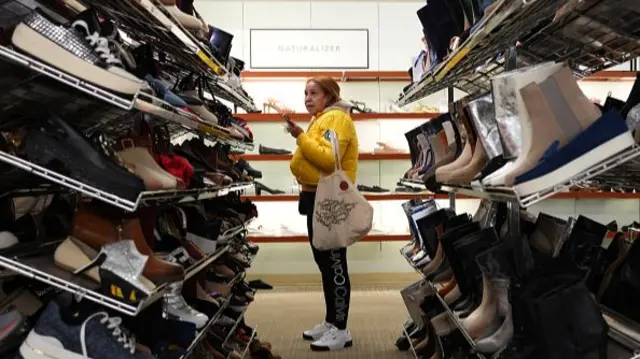Almost 100% chance of global recession - top economistpublished at 17:38 British Summer Time 22 April
A former chief economist of the International Monetary Fund says if Trump doesn't retreat on his tariffs, the chance of a US recession and subsequent global recession, are "almost 100%".
Kenneth Rogoff was speaking to BBC Radio 4's PM programme - listen to his explanation below.












